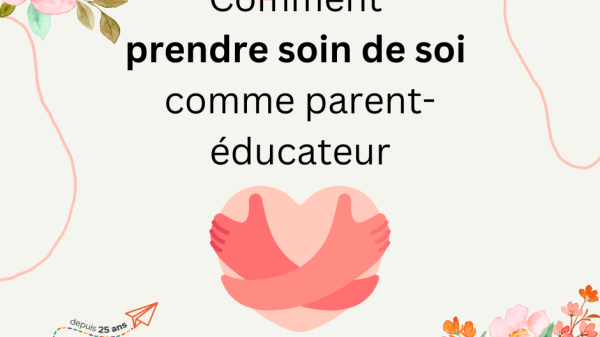Katherine’s lessons: 2 – The Learning Project

Alright, you’ve sent your notice of intent to homeschool to the Direction de l’enseignement à la maison (DEM) and to your school board? If not, you can read about it on my 1st lesson. It’s time for the next step.
Now you need to send your learning project to the DEM to show the basis on which your child’s progression will be evaluated at the end of the year. This project must be sent before September 30th (for parents who sent their notice of intent before July 1st) or within 30 days following the submission of your notice of intent (for parents who sent their intent after July 1st).
Indeed, during your homeschool adventure, you become fully responsible for your child’s education rather than delegating this responsibility to the school system. You will therefore need to make decisions and not expect anybody else to do it for you or provide you all the necessary materials.
The good news is that AQED’s website has tons of information for you. Take the time to read through it carefully and consult the different templates provided on the page Learning project to build your expertise.
Below are the key components to consider in preparing your learning project.
Compulsory subjects
These are all compulsory subjects that must be included in your learning project: French, English, mathematics, science/technology, social studies (history/geography). All other subjects are considered personal enrichment and are not evaluated. There is no need to include them in your learning project.
Pedagogical approach and textbooks
The learning project can be based on a traditional approach using textbooks. Textbooks usually sold in large retail outlets are not recommended as a basis for the whole year. However, they can be quite useful to review content.
You should instead use textbooks from the websites of established educational publishing houses. They generally provide excerpts to show the content and difficulty level to allow you to purchase the right book. The best known publishing houses in Québec are: CEC, Pearson ERPI, Chenelière, Guérin and Grand Duc.
Finally, keep in mind that using textbooks is not mandatory and that other pedagogical approaches exist.
The Québec Education Program (QEP)
According to the homeschooling regulations, parents must abide by the QEP. This program includes all the skills/competencies that must be acquired for each compulsory subject by the end of each cycle. For elementary school: 1st cycle (grade 1 and 2), 2nd cycle (grade 3 and 4) and 3rd cycle (grade 5 and 6). For high school: 1st cycle (grade 7 and 8) and 2nd cycle (grade 9 to 11). You therefore have some leeway in terms of content, but you need to stay generally within the lines of the QED or relate your program to the QEP.
The Progression of learning (POL), which is a very detailed plan to help teachers implement the QEP, is not mandatory in a homeschooling context.
The QEP is available here.
Level by subject
You need to write one learning project per child and you need to specify the level for each subject (it is perfectly acceptable if your child progresses at a different speed in different subjects). This level does not need to be certified by a test or any outside references. You can also decide to consolidate certain skills before moving on to the next level. Finally, you can also simply indicate the cycle without being specific concerning the year of the cycle.
Higher level
You can also decide to teach your child at a level higher than the one corresponding to their age. Keep in mind, however, that when ministry exams become compulsory (most probably for the academic year 2021-2022), your child will need to write the exam corresponding to the level mentioned in the learning project.
You therefore need to consider the consequences of your decision. Perhaps it’s better to think outside the box by including supplemental material than to jump years? Only you can make this decision, because you know your child and the stress they might feel.
Homeschooling allows you to move forward at your child’s pace, keeping in mind that emotional maturity may not correspond to academic maturity.
Evaluation methods
In your learning project, you need to specify which evaluation method you choose to measure the progression of your child. According to the regulations, there are five options, including the annual exams at the service centre of your region. However, keep in mind that exams are NOT compulsory in a homeschooling context. You can also choose the evaluation using a portfolio or one conducted by someone with a teaching license.
For more details on evaluations, please take a look at the page Annual evaluation of AQED’s website, or stay tuned for my up-coming lesson on evaluations.
Frequency of learning activities
The learning project must include some information on the frequency of learning activities. This is easy to figure out if you have a schedule similar to the school system. However, if that’s not the case and you are indicating that your children learn all the time and in a variety of circumstances, simply give two or three examples of situations that will help your contact person to understand how you operate.
The role of your resource person at the DEM
Your resource person at the DEM is there to help you. They evaluate whether your learning project complies with the government regulations, and they should offer guidance in making it compliant. Their mission is not to discipline you, but rather to help you satisfy your obligations. This being said, you may receive unrealistic requests. In such cases, send an email to AQED. It is always possible to discuss and adjust.
The DEM only wants to know where you are headed. Indeed, a learning project is not cast in stone. It’s only a plan of what you would like your child to discover during the upcoming year. You can therefore update it during the year if needed. To do so, you need to inform the DEM by uploading the modified learning project in your secured profile at the DEM and confirming with your DEM resource person whether it is acceptable.
There you go! You should now have a more precise understanding of the learning project and the information that it must contain. Don’t worry, even if you’re not accustomed to this type of paperwork, it’s not an exam!
The opinions expressed in this article are those of the authors and should not be interpreted as reflecting the position of AQED.



